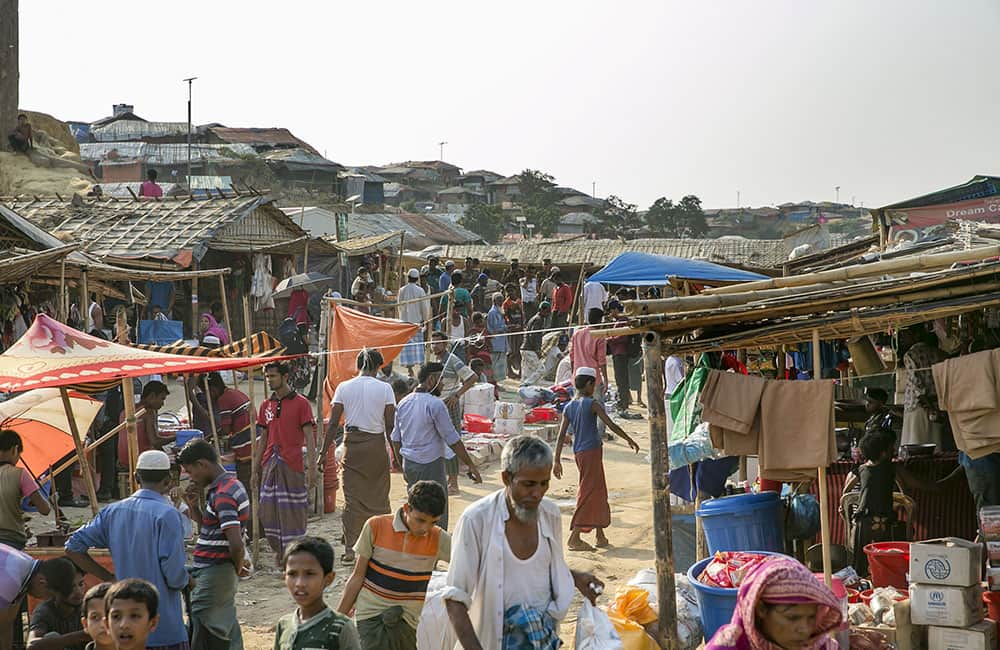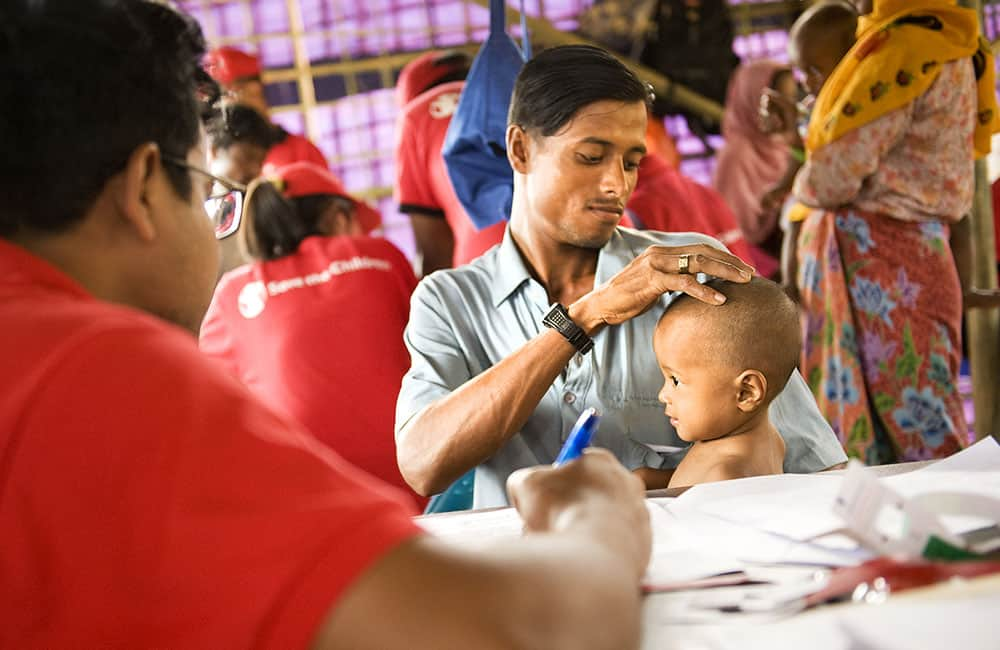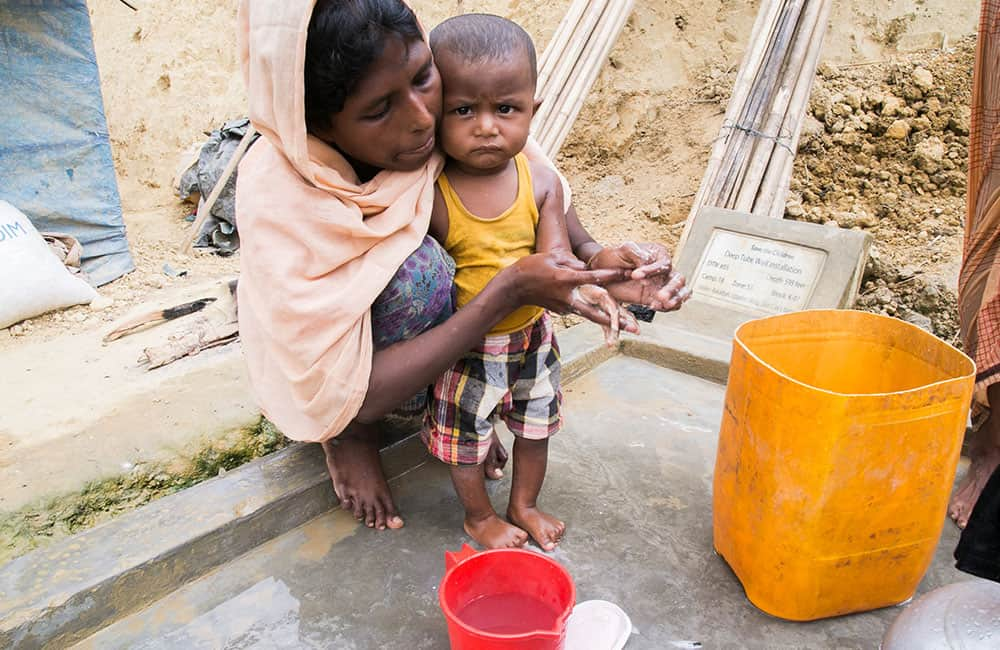COVID-19 gives us a glimpse of what life is like for Rohingya Refugees
COVID-19 has impacted all Australians in one way or another. Despite massive job cuts, loss of income and fears of how this will affect our economy, we are all doing our bit to flatten the curve. This is certainly a trying time for many families in Australia, yet the uncertainty the COVID-19 presents gives us a unique insight into the ongoing issues faced by families caught up in the world’s worst humanitarian crises.

A market in a Rohingya refugee camp
Stateless
In the past few weeks, Australians have watched with quiet optimism the flattening of our curve. We have been inundated with government-sponsored announcements, explaining that we are in phase three of isolation, and exactly what that meant. We are fortunate to have governments both federal and state, willing to guide us through what is ultimately the unknown.
Imagine then what it would be like after the COVID-19 outbreak, if the country where your grandparents, your parents, you, and your children were all born, did not recognise you as a citizen. So much so that in August 2017, you fled your home not before seeing mass atrocities against you and your community that were based solely on your ethnicity.
This is the tragic story of almost one million Rohingya men, women and children now living in Cox’s Bazar, the world’s largest refugee camp. Save the Children, along with the broader international humanitarian community are terrified as to what might happen to refugee families who fled unspeakable violence.
Unfortunately the first case of COVID-19 was recently announced in the Rohingya camps, meaning already-vulnerable families will be relying solely on the information, instruction, and medical support of humanitarian organisations like Save the Children. And current travel restrictions will make it very difficult to deploy additional support staff.

Saif and his son Shafiq, 18 months old, at a Save the Children supported clinic in Cox's Bazar
Save the Children, along with Oxfam, Humanity and Inclusion, and Care, have come together to give displaced families living in camps in Cox’s Bazar a much-needed structure. While we do not govern activities in their day to day life, the Inclusive Communities Consortium brings together the strengths of different agencies to give children and families a sense of purpose and avenues in which to express their needs.
Within the consortium, Save the Children heads up activities around health and education in the camps. While we and the rest of the consortium are working tirelessly to meet the needs of these densely populated camps, we hold grave concerns that if COVID-19 came into the camps, it would spread rapidly, leaving staff and volunteers overwhelmed.
Save the Children has warned that Bangladesh is woefully under resourced should COVID-19 become a serious threat. Thankfully we are not there yet, but something we in the Lucky Country must remember when it comes to helping some of the most vulnerable children in the world.
The Unknown
Being one of the first NGOs on the ground in Cox’s Bazar, Save the Children has the largest programs helping children and families trying to survive. But as coordinated and impactful as our response might be, the families who fled have no idea what might happen to them next. They remain some of the most fragile people in the world today.
Three months after families fled their homes, local newspapers in Bangladesh were flooded with headlines about ‘Repatriation’. The Rohingya were causing a huge strain on local markets and economies, and the sheer volume of aid workers traveling in and out of the camps were causing traffic congestion, stopping children who were already there from being able to travel to and from school. The idea that the Rohingya were not permanent refugees was comforting for some Bangladeshi, but it left newly arrived children and families with an unease and a constant fear about what the next day might bring.
In Australia, as we all face months of COVID-19 - related uncertainty, we collectively have no understanding of what is coming next. Yet so many of us send text messages or end Zoom calls with plans of what we will do, ‘when this is all over.’ We know that we will get through this, but for Rohingya families living in Bangladesh, this state of uncertainty that we are now experiencing has for years been a part of their everyday life.
Social Distancing
The sheer volume of people who crossed the border from Myanmar for safety has meant that refugee Rohingya families are living in some of the most confined housing in the world. Approximately 40,000 people are living within a square kilometre, which means the social-distancing measures we have in place in Australia are virtually impossible in the camps.

Zura cleans baby Ahmed, 10 months old, after his morning play time
in the Rohingya camp in Cox's Baza, Bangladesh
Wash your hands
How many times have you washed your hands or used hand sanitizer today? It has become a more structured part of our daily lives here in Australia. An increase in awareness and preventative measures means many of us are turning up to supermarkets and seeing shelves stripped of sanitation products that might support our collective resistance. Yet, Rohingya families in Bangladesh have very little access to sanitation products and facilities that might keep them safe in the event of an outbreak.
To further complicate the lack of sanitation in the camps, the government has implemented bans on internet and mobile phone services meaning key mass messaging that might keep families safe should there be a COVID-19 outbreak in the camp.
Isolation
Even through these difficult times, we must try to remember the children around the world who have no space to socially distance themselves from threats, no government to give them guidance, and absolutely no understanding of when their lives might return to normal.
These are indeed uncertain times. It is wonderful to see how Australian families are looking after one another by living within the parameters outlined by state and federal governments. And while we grumble about staying indoors and wonder when all this will end, it must be understood – social distancing is a privilege.


The Inclusive Communities Consortium is supported by the Australian Government and implemented through the Australian Humanitarian Partnership.